The Complete Appliance Repair Guide
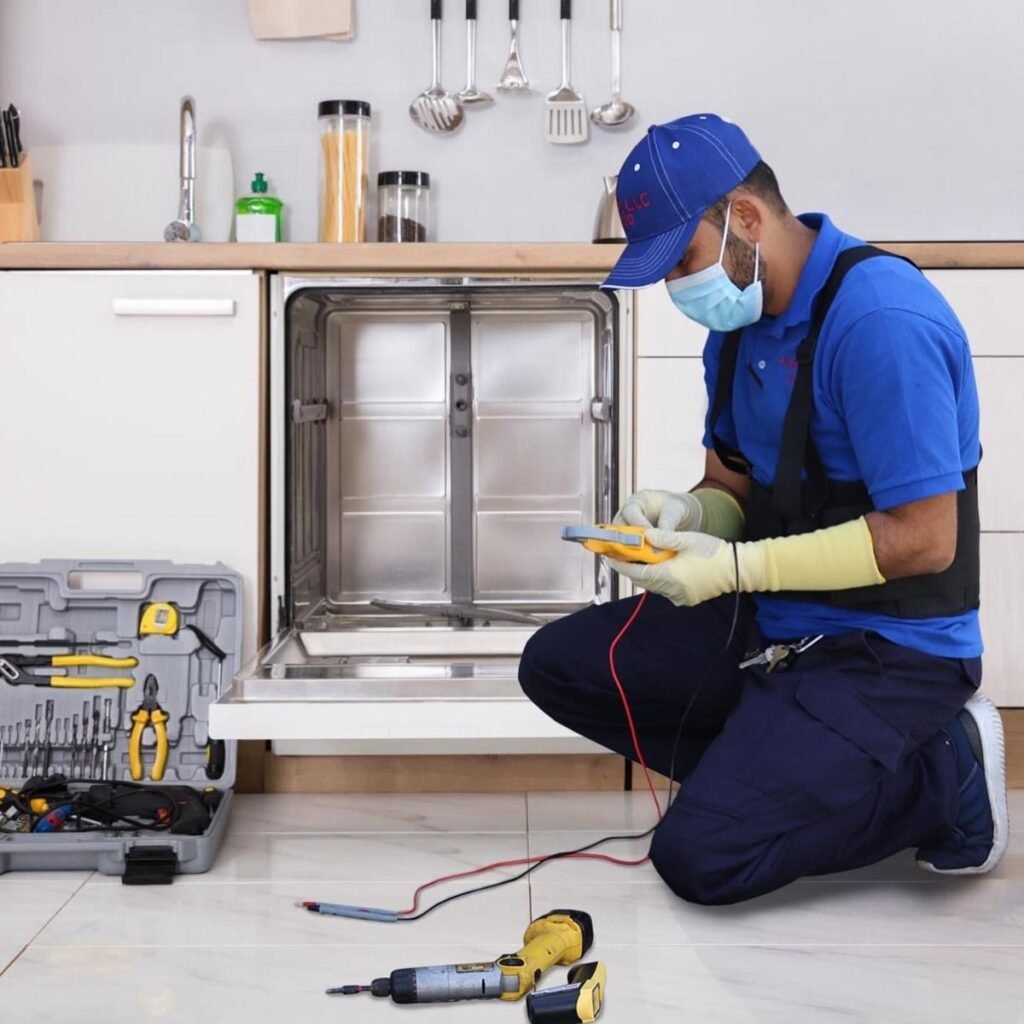
Introduction
Everyday assistants are our household appliances. They prepare our food, clean clothes, store food, and make life simpler. When one of them ceases to function, however, it can disrupt our entire routine. Repairs cost money, and waiting for a technician can be annoying. The good news? If you know some general appliance repair tips, you can usually address small issues yourself and avoid them developing into larger, more expensive problems. This Appliance Repair Guide will take you through typical appliance issues, how to maintain your appliances at their best, and when to call in a professional.
Common Appliance Problems and Fixes
Refrigerator Problems
- Not Cooling Properly
First, verify the thermostat settings to ensure they are correct. Dirty condenser coils also lead to lack of cooling, so clean them thoroughly. Ensure air vents inside are not blocked by food.
- Leaking Water
This is usually due to a frozen or clogged defrost drain. Clean out the drain and inspect whether the water line is damaged.
- Strange Noises
Harsh buzzing, clicking, or knocking noises may indicate a malfunctioning motor or compressor. If the noises do not subside, it’s time to seek a professional’s advice. For more troubleshooting tips, this Appliance Repair Guide can help you pinpoint the cause and decide whether to repair it yourself or call an expert.
Washing Machine Issues
- Failure to Drain Water
A clogged drain hose or faulty pump is usually the cause. Inspect the hose for clogs and flush out any stuck debris.
- Shaking and Vibrating
Ensure your washer is level on the floor and that you’re not overloading it. Uncenter laundry loads will cause the machine to shake too much.
- Bad Smell
Mold and mildew can develop within the drum. An empty hot water cycle with vinegar and baking soda should perk things up. As outlined in this Appliance Repair Guide, tackling these issues early can extend your washer’s lifespan and keep it performing efficiently.
Dryer Troubles
- Not Heating
If the dryer operates but does not heat, it may be the result of a blown thermal fuse or bad heating element. These are frequently replaced parts, and this Appliance Repair Guide can help you understand when to replace them yourself or call a professional.
- Takes Too Long to Dry
The airflow is reduced by a clogged dryer vent. Clean the lint trap after each load, and inspect the vent pipe for lint accumulation.
- Loud Noises
Worn drum rollers or belts may cause squeaking or banging. Replacement of these parts will restore quiet performance.
Oven and Stove Problems
- Uneven Cooking
Food that is not cooking evenly could be due to a defective heating element or temperature sensor. Replace the faulty components for even results. This Appliance Repair Guide recommends checking these parts first to restore consistent cooking performance.
- Gas Burner Won’t Light
Clean the burner holes and inspect the gas connection. Occasionally food spills clog the flame ports.
- Oven Door Won’t Close Correctly
If there is heat loss, perhaps worn hinges or a broken door seal are to blame. Replacing them ensures accurate cooking temperatures.
Malfunctions in the Dishwasher
- Failure to Clean Properly
Clogged spray arms, dirty filters, or improper detergent can lead to ineffective cleaning. Keep such parts clean for optimal performance, and refer to this Appliance Repair Guide for tips on preventing these issues in the future.
- Leaking Water
A broken door seal or clogged drain is usually the culprit. Check seals and clear debris.
- Won’t Start
Verify the power supply, door latch, and control buttons before ordering a repair service.
Appliance Maintenance Tips
Preventive maintenance is the simplest way to prevent costly repairs. As recommended in this Appliance Repair Guide, here’s how to maintain your appliances in optimal condition:
- Clean the Filters
Filters in dishwashers, washing machines, and dryers must be cleaned periodically to prevent clogs.
- Avoid Overloading
Heavy loads put motors and belts under excessive stress, reducing your machine’s lifespan.
- Check for Leaks
Check hoses and water lines for cracks or loose connections on a regular basis.
- Maintain Clean Appliances
Wipe surfaces frequently and clean dust from concealed areas such as refrigerator coils.
- Adhere to Manufacturer Guidelines
Your user guide contains special maintenance recommendations that ensure your appliance’s longer lifespan.
When to Call a Professional
Although there are some handyman tasks that you can do yourself, some need to be done by professionals. If you see, the Appliance Repair Guide can help you determine which jobs are safe for DIY and which require expert attention:
- Electrical Problems
If the appliance blows your breaker or has loose wires, don’t take a chance to hire a technician.
- Unusual Odors or Smoke
Burning odors or smoke indicate you need to turn off the appliance at once and seek professional assistance.
- Rough Repeated Repairs
If the same issue recurs repeatedly, there could be a more serious problem.
- Water Damage
Recurrent leaks can ruin floors, walls, and even your home’s foundation.
Do-It-Yourself vs. Professional Repair
- Do-It-Yourself Repairs
Best for simple repairs such as filter replacement, clogged hose clearing, or screw tightening.
- Professional Repairs
Required for complex work such as motor replacements, wiring repairs, or working on gas appliances.
Selecting the Proper Appliance Repair Service
If you opt to hire a professional, select a service you can trust by searching for recommendations in a reliable Appliance Repair Guide:
- Experience and Expertise
Select technicians familiar with your appliance brand and model.
- Customer Reviews
Look at online feedback to determine if others had a pleasant experience.
- Warranty and Guarantees
A reputable company will back up their work with part and labor warranties.
- Fair Pricing
Have several providers quote so you know you’re getting a fair price.
Conclusion
Maintaining your appliances is not all about repairing issues, it’s about avoiding them. Maintenance saves you money, saves you stress, and keeps your home humming. Although you can fix minor problems yourself, don’t shy away from calling in a professional for serious problems where safety is the concern. The optimal combination of DIY maintenance and professional assistance will keep your appliances running smoothly for many years to come. As highlighted in this Appliance Repair Guide, if you listen to subtle warning signals and practice regular maintenance, you will maximize your appliance performance and minimize the annoyance of unexpected failure.
-
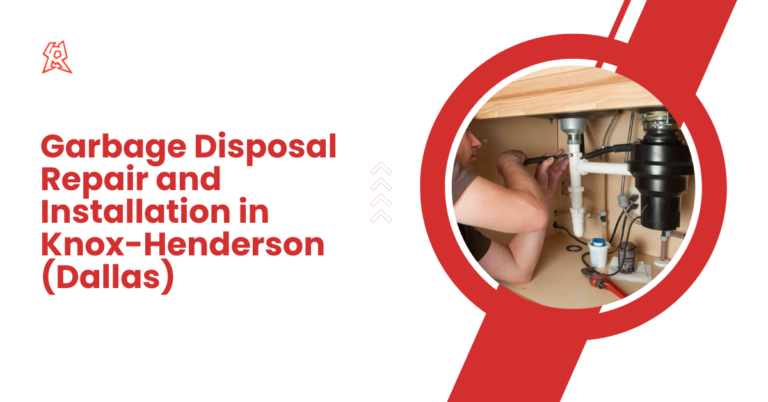 Garbage Disposal Repair and Installation in Knox-Henderson (Dallas)23 Feb 2026 Blog
Garbage Disposal Repair and Installation in Knox-Henderson (Dallas)23 Feb 2026 Blog -
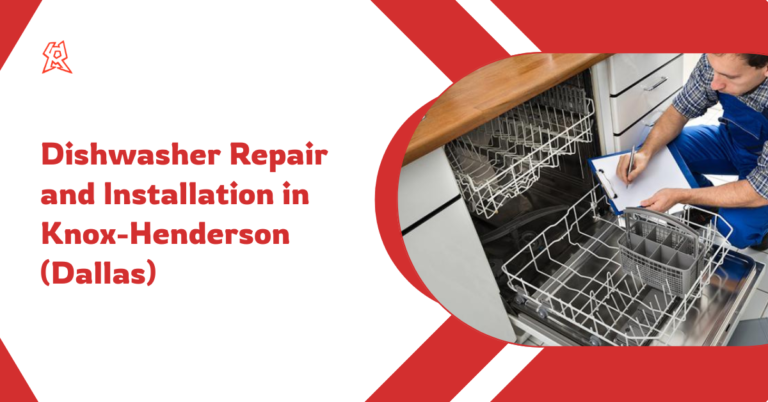 Dishwasher Repair and Installation in Knox-Henderson (Dallas)23 Feb 2026 Blog
Dishwasher Repair and Installation in Knox-Henderson (Dallas)23 Feb 2026 Blog -
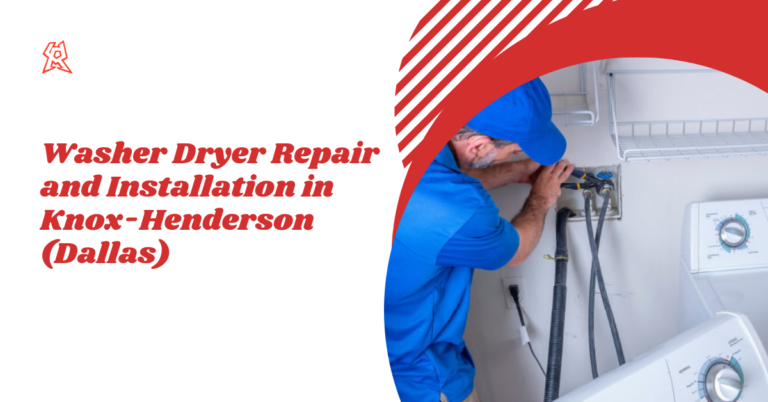 Washer Dryer Repair and Installation in Knox-Henderson (Dallas)23 Feb 2026 Blog
Washer Dryer Repair and Installation in Knox-Henderson (Dallas)23 Feb 2026 Blog -
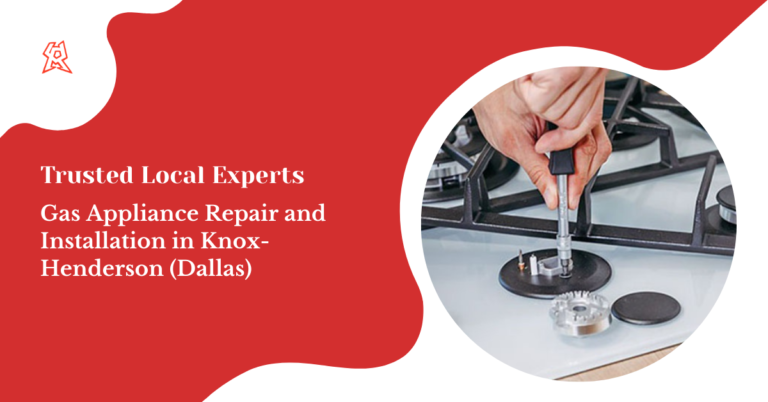 Gas Appliance Repair and Installation in Knox-Henderson (Dallas): Trusted Local Experts23 Feb 2026 Blog
Gas Appliance Repair and Installation in Knox-Henderson (Dallas): Trusted Local Experts23 Feb 2026 Blog

